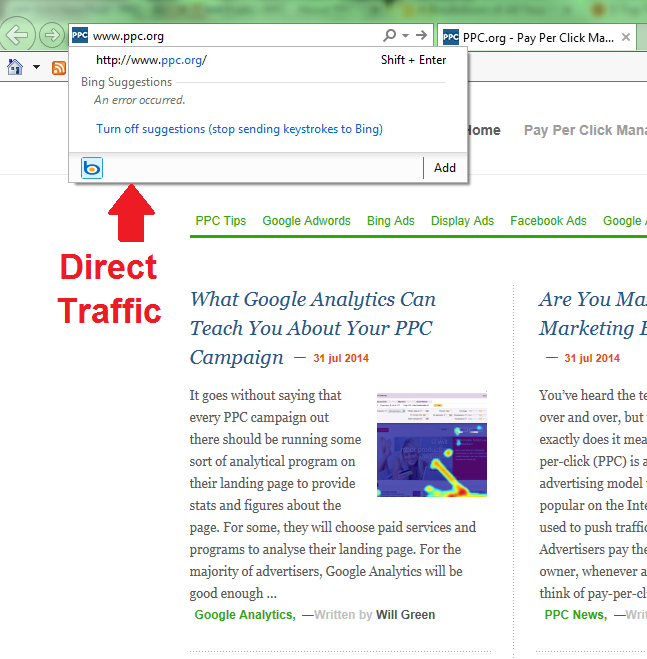For anyone who owns and runs a website, it is a necessity to keep up to date with what are your website’s main sources of traffic. This is because you can then concentrate your efforts more wisely on each respective source of traffic to increase them. The problem is that you may not know what your main sources of traffic are. Fear not, my friend. In this article, I will explain to you the main sources of traffic a website can get.
However, the first step to this article is for you to install an analytical program on your website. The most used form, of course, is Google Analytics so I would recommend you install Analytics onto your website and let the statistics and figures start flowing in. Once you do this, you can then start to see what your main sources of traffic are and what are not. Here are some major sources of traffic for many websites out there (including my own):
Search Engines (Organic)
Without doubt, the biggest source of traffic will (or should be) from search engines. This all depends on how highly ranked your site is organically, though.
Search engine traffic comes from web users that search for something in a search engine and then see your website in the results and click onto it. Organic traffic is easy to distinuish since the link to the website is always something long such as ‘https://www.google.co.uk/url?sa=t&rct=j&q=&esrc=s&source=web&cd=4&cad=rja&uact=8&ved=0CDkQFjAD&url=http%3A%2F%2Fwww.askwillonline.com%2F2011%2F04%2Finternal-and-external-sources-of.html&ei=sqHfU9aTF6XN7AbugoHwCg&usg=AFQjCNG7VodPVkiywZ7EZshKFkZ7BcSTxg’
which then links straight to the actual webpage.
Social Media
If you have installed social media buttons onto your website, you should expect to get some traffic from social media websites inparticularly Twitter and Facebook (since these are the most used). The great thing about social media traffic is that it has the potential to make any of your articles go viral if the person who shares the post has a large online presence. The only downside to social media traffic is that it is completely inconsistent. You cannot tell when somebody is going to share your articles or not. The only way you can make this source of traffic consistent is by sharing every article, when published, to social media accounts that represent the website.
Referral
Referral is a source of traffic that comes from any website that has an inbound link to you. For this reason, the amount of referral traffic you gain depends on the amount of websites that have linked to your website and how popular they are.
This does not mean that you should go ahead and guest post for others to gain a link back to your website. From my experience with SEO, guest posts with dofollow links to other websites at the end of them are actually causing more damage than good to the people who wrote the guest posts. It is best to get links from other websites naturally.
Direct
Direct traffic is basically traffic that visits your website through no other means (such as social media, search engines, referral websites and so on). For example, if you wanted to visit PPC.org directly, all you would have to do is type ‘www.ppc.org’ into the address bar of your web browser and your visit would count as direct.
Direct traffic is a healthy source of traffic because it means there are people that are directly coming to your website off their own backs and remember the name of your brand and your website.
The only downside to direct traffic is that they tend to not make websites that are running PPC not as much money. This is because from visiting the website many times, they have learnt where the information they want is and where the adverts are.
Well, there are the four main sources of traffic of websites although this might not always be a case. If you have a PPC campaign to boost your website’s traffic, obviously paid search is one of your main sources of traffic. However, for most websites, the above four sources of traffic are their main.





